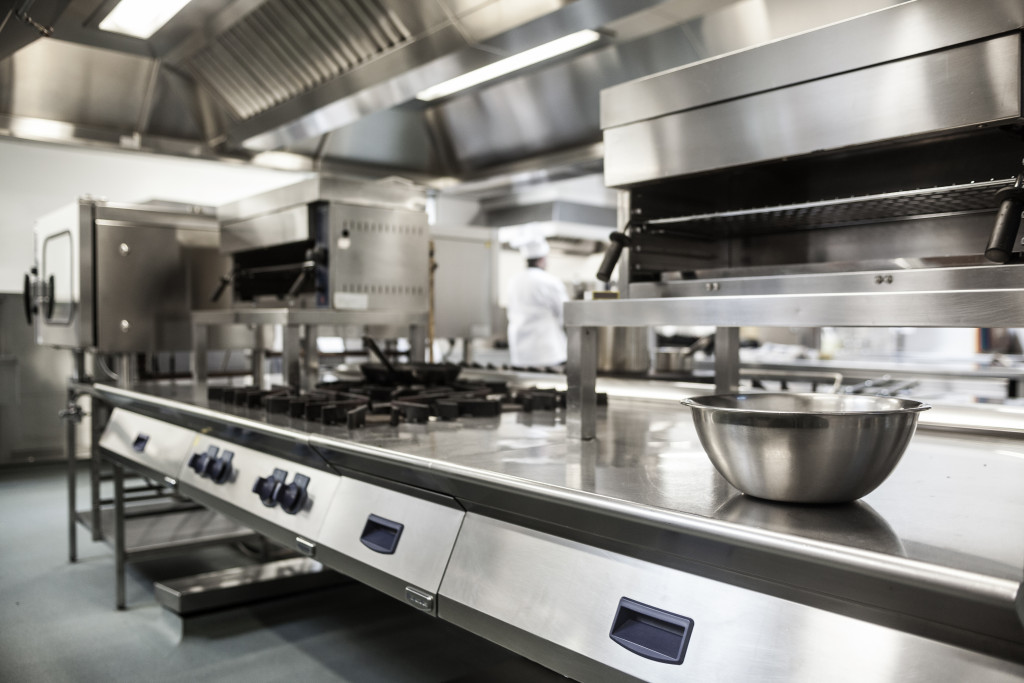Keeping your restaurant’s kitchen running efficiently is an essential part of the success of your business. A well-managed kitchen can help you keep costs under control and keep customers happy. But managing a kitchen is a complicated proposition, and it can be easy to overlook critical elements that could lead to costly issues down the line. Here are some practical tips to reduce kitchen issues in your restaurant business.
1. Properly Train Your Staff
The staff in your restaurant’s kitchen should be adequately trained in all aspects of their job, from safety protocols to food preparation techniques. This will ensure that everyone knows the best practices for preparing and serving food and how to handle any potential problems that may arise. Investing in proper training for your staff will pay dividends in improved efficiency and reduced issues down the road.
You can usually find training videos, books, and seminars online to get your staff up to speed. This is a great way to ensure everyone is on the same page and knows exactly what they need to do in each situation. You can also talk to your local health department, as they may be able to provide additional resources and guidance. They may even be able to provide food safety training for free.
2. Invest in Quality Kitchen Equipment
Because of the high volume of food prepared in a restaurant kitchen, it’s essential to invest in quality equipment. Even though it may cost more upfront, you’ll save money in the long run. Quality kitchen equipment is designed to be durable and will last longer, reducing the need for costly repairs. For example, refrigerators and ovens should withstand continuous use in your kitchen, and cutting boards should be made from hardwood or similar material that won’t harbor bacteria.
You can also invest in commercial water softener systems that will help decrease the build-up of mineral deposits on your equipment and reduce the risk of food contamination. Soft water also helps your kitchen detergents to work more effectively, which can help cut down on cleaning time and improve the longevity of your equipment. Think of it as an investment in the future of your restaurant.
3. Maintain Small Stock
Holding too much stock can lead to waste and spoilage, so it’s important to keep only what you need on hand. Regularly checking inventory levels and adjusting them as needed will help prevent spoilage, save money, and avoid unnecessary waste. It’s also important to rotate stock regularly so that older items are used first, and new stocks take their place quickly before they expire or become stale.
If you worry about running out of ingredients, you can look into partnering with a local supplier who can provide emergency stock as needed. This will help ensure that your kitchen always has the supplies it needs to operate efficiently. Ensure you’re ordering the correct quantity and type of ingredients to avoid overstocking, which can lead to waste.

4. Keep Kitchen Equipment Clean
Cleanliness is paramount when it comes to preventing kitchen-related issues in restaurants. Grease build-up on cooking surfaces or deep fryers can lead to fires, poor-quality food, or even health hazards such as cross-contamination between raw and cooked foods. Keeping all equipment clean is essential for a safe and efficient kitchen environment and for ensuring customer satisfaction with every meal.
If you can’t keep up with cleaning tasks, you can consider hiring a professional to do the job for you. They’ll be able to ensure that all surfaces are properly sanitized and cleaned promptly. Taking the extra step to ensure your kitchen is clean will pay off in the long run.
5. Manage Temperature Controls
Proper temperature regulation is essential for a successful restaurant business, especially with refrigerated storage areas such as walk-in coolers or freezers. Temperature fluctuations can lead to costly spoilage or contamination risks if not monitored carefully. Making sure that temperatures remain consistent throughout the day will go a long way toward avoiding these risks while also allowing food items like meats or dairy products to stay fresh longer without spoiling prematurely.
Check the temperature of your refrigerators and freezers regularly to ensure that they are working properly and keeping food at the right temperature. Investing in a commercial refrigerator thermometer is worth the cost if you want to ensure your kitchen is always running safely and efficiently. You should also consider investing in a backup generator in case of power outages, which can help maintain temperature levels during an emergency.
Reducing kitchen issues requires diligent effort from management teams and individual staff members. Taking proactive steps such as properly training staff, maintaining small stock levels, investing in high-grade gadgets, keeping equipment clean, and regulating temperatures are all critical components of establishing an efficient kitchen environment that helps ensure customer satisfaction with every meal served. By implementing these practical tips regularly into your restaurant operations, you’ll set yourself up for success now —and into the future.

